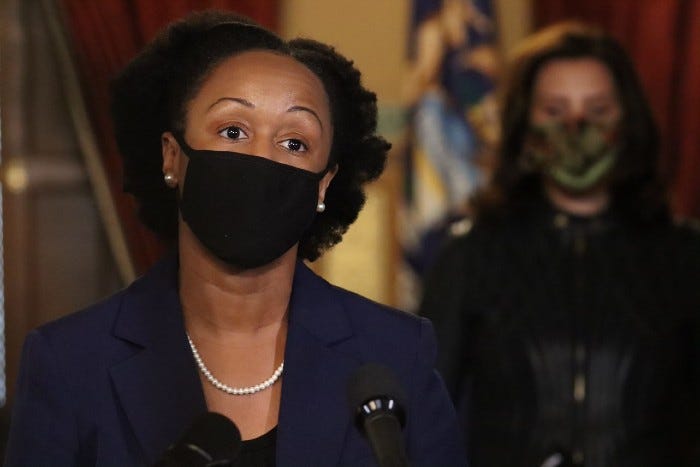
(WWJ) Possibly exposed to the coronavirus? You may not need to quarantine for quite as long, according to the latest advice from state and federal health officials.
The Michigan Department of Health and Human Services (MDHHS) has updated guidance on COVID-19 quarantine periods based on scientific findings put out by the Centers for Disease Control and Prevention (CDC) this week.
Dr. Joneigh Khaldun, Michigan's chief medical executive and chief deputy for health, says while a 14-day quarantine -- meaning the time you are asked to isolate yourself from others -- remains the "gold standard," people who don't develop symptoms within 10 days may be released early.
The reason? Khaldun said research has shown that, in a majority of cases, those who fell ill did so within the first 10 days after they were exposed.
More details from the health department:
The CDC presented findings describing options to reduce the required number of quarantine days for individuals with known exposure to a confirmed COVID-19 case. The existing 14-day recommendation was based on earlier data that estimated the COVID-19 incubation period. At the national level, estimates of the COVID-19 incubation period have been refined based on a review of case data for hundreds of thousands of cases.
Data from that assessment indicates that 99% of all infections will develop within 10 days of exposure. While a 14-day quarantine period is still standard, under certain conditions the CDC has presented an option for reducing the quarantine period for exposed individuals to 10 days after exposure.
Based on the evaluation of the CDC information, MDHHS is updating guidance to allow modifications to the quarantine period for Michigan residents in specific situations.
While the standard 14-day quarantine period remains, it can be reduced to 10 days if the following two conditions exist:
- The individual does not develop any symptoms or clinical evidence of COVID-19 infection during daily symptom monitoring for the 10 days after the last exposure.
- Daily symptom monitoring continues through day 14 after the last exposure.
“We are basing this recommendation on scientific data from CDC and offering the opportunity to reduce the quarantine period to 10 days in certain circumstances,” said Khaldun. “Public health officials can still require the 14-day period as this option most greatly mitigates the possibility of transmission. We strongly urge the continued use of masks, social distancing and hand washing to help prevent the spread of COVID-19.”
With consideration for existing and potential limitations on the availability of testing resources and concerns of increased turnaround time for lab results, MDHHS is currently reviewing options for further reduction of quarantine periods based on diagnostic testing results. MDHHS guidance may be updated at a later date based on that review.
Get all the latest Information on the coronavirus in Michigan at Michigan.gov/Coronavirus.


